2010 Wimmer Faculty Fellows
We are pleased to announce the 2010 Wimmer Faculty Fellows. These fellowships are made possible by a grant from the Wimmer Family Foundation and are designed for junior faculty members interested in enhancing their teaching through concentrated work designing or re-designing a course, innovating new materials, or exploring a new pedagogical approach. Fellows work in close collaboration with Eberly Center teaching consultants and receive a stipend to acknowledge the work it takes to improve one's effectiveness as an educator.
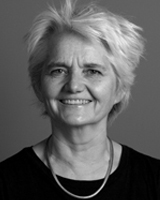 |
Mary-Lou Arscott, Adjunct Associate Professor, School of Architecture Mary-Lou's project focuses on helping upper-level architecture students bridge "the conceptual gulf between the imagined, the drawn, and the real." Her plan is to combine history, theory, and cutting-edge design technology seamlessly into a single class so that students clearly see how these aspects of architectural practice inform one another. In her course, students will work in groups to conduct research on the design and construction of iconic local buildings and then document the construction process via 3-D digital modeling. Mary-Lou will work with the Eberly Center to design a course that integrates history, theory, and design in a logical and cohesive way, and then to identify suitable buildings for student projects, forge cooperative relationships with building owners and archivists, and identify relevant teaching materials. |
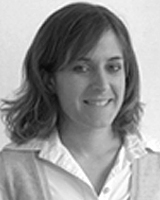 |
Gabriela Hug, Assistant Professor, Department of Electrical and Computer Engineering Gabriela's Wimmer Project focuses on developing a new undergraduate course on power systems. While power systems are critical for the functioning of all modern societies, many academic programs on power systems closed over the past two decades because of lack of demand for graduates. However, now with an aging work force, demand for engineers with an understanding of power systems has greatly increased and there is a real need for this kind of undergraduate course. Gabriela plans to work with the Eberly Center to design a lively and relevant course that helps students to connect what they are learning to their own energy consumption and to discussions of energy sources and power in the popular press. |
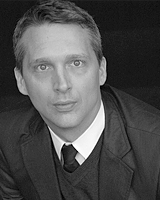 |
Brian Russman, Assistant Professor, School of Drama Over the past year, Brian has been developing a master's program in Costume Production within the School of Drama. His goal for the Wimmer Program is to develop a set of mini-courses in Costume Production, including Theatrical Armor creation, Casting and Mold Making, Couture Techniques, and Mask Making. Recognizing that this is an ambitious project, Brian plans to work with Eberly staff to develop one or two of these courses to serve as a template for the others, as well as to determine a process for creating syllabi, assignments, and sample costuming materials that can serve as models for particular styles and techniques. |
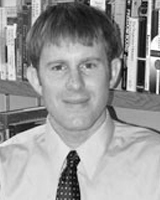 |
Nico Slate, Assistant Professor, Department of History Nico plans to use the opportunity afforded by a Wimmer Faculty Grant to create a new interdisciplinary course on social entrepreneurship. The course will encourage students to think about definitions of social entrepreneurship and mechanisms of social change by analyzing the successes and failures of notable social entrepreneurs, past and present. The course will include a service learning component, placing student teams with contemporary social entrepreneurs to work on focused projects. Nico plans to work with Eberly staff to design the course so that it capitalizes on accumulated knowledge of effective practices in interdisciplinary, experiential, and service-based education. |
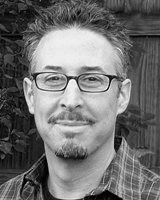 |
Jon Rubin, Associate Professor, School of Art Jon encourages students to question artistic conventions and canons and decide for themselves how to make art that is a natural extension of their own attitudes towards the world. To this end, he has developed a course called "The Storefront Project", in which students use a rented storefront in East Liberty to present a range of creative projects "that have a catalytic relationship to surrounding social, physical, and economic context." With the support of a Wimmer grant, Jon plans to work with Eberly staff to develop teaching strategies to foster effective collaboration among the students in this course. He also hopes to collect an archive of projects by artists and non-artists to help illustrate his course objectives to students from diverse disciplinary backgrounds. |